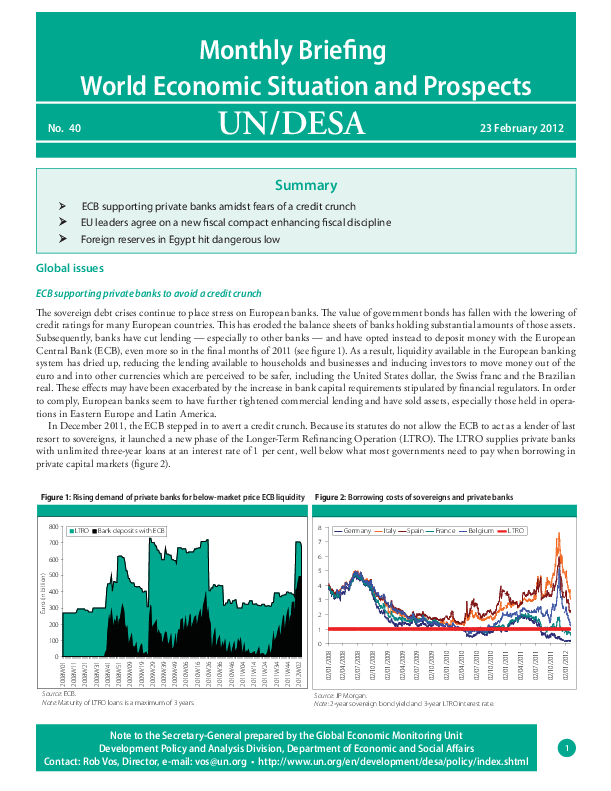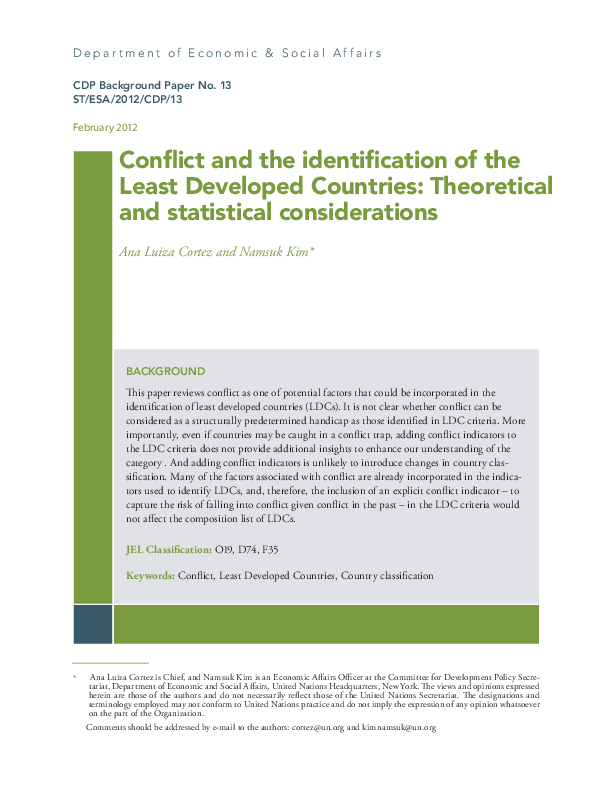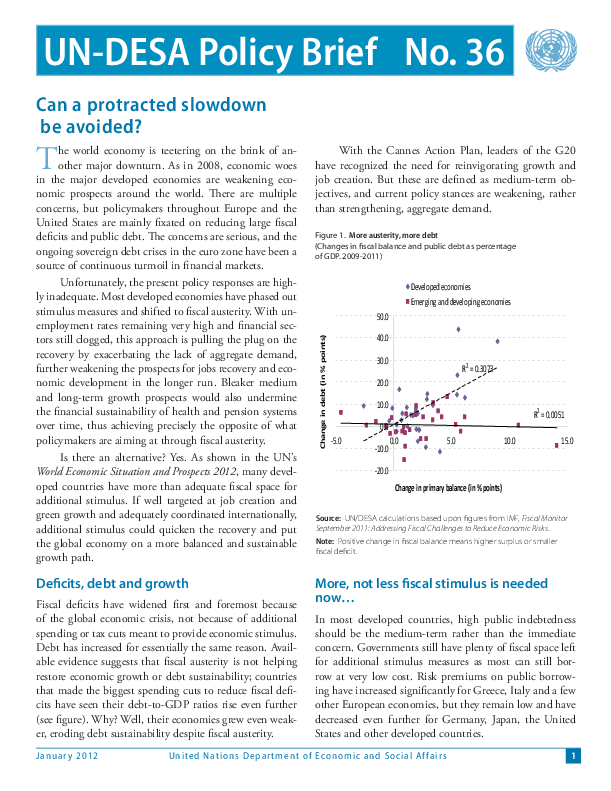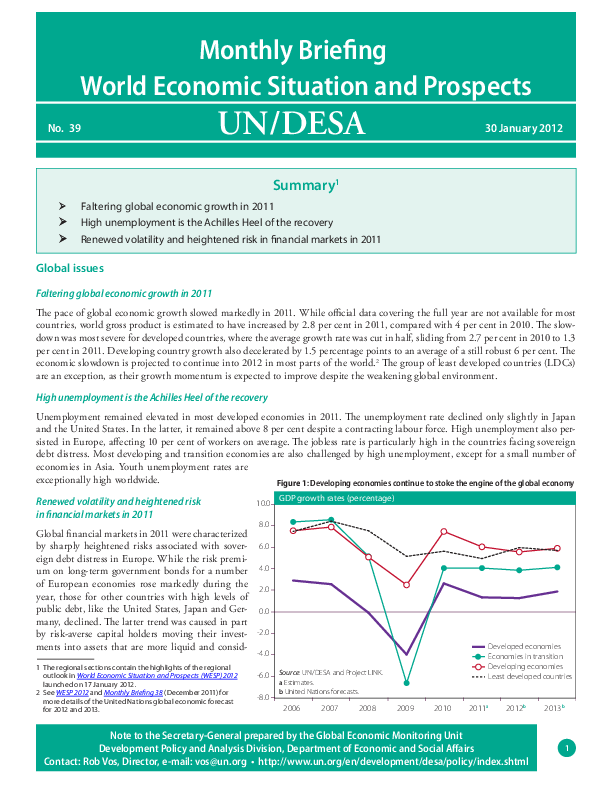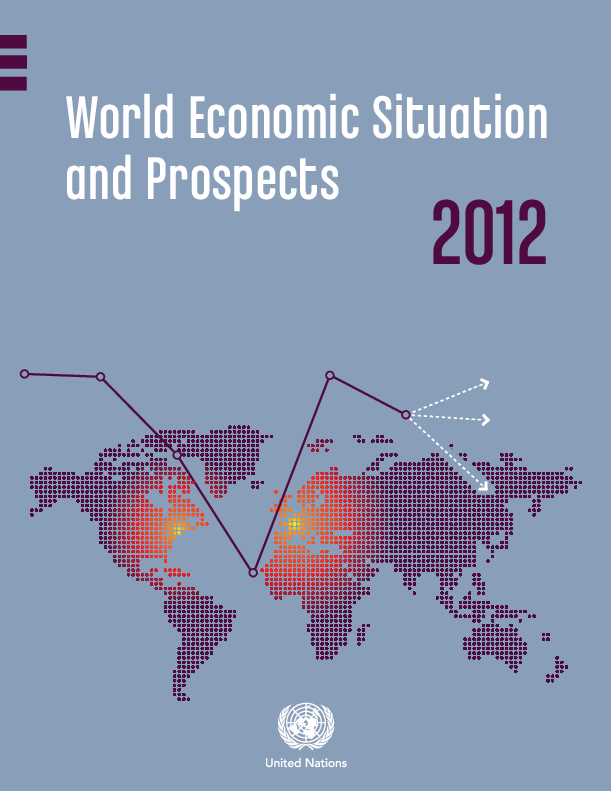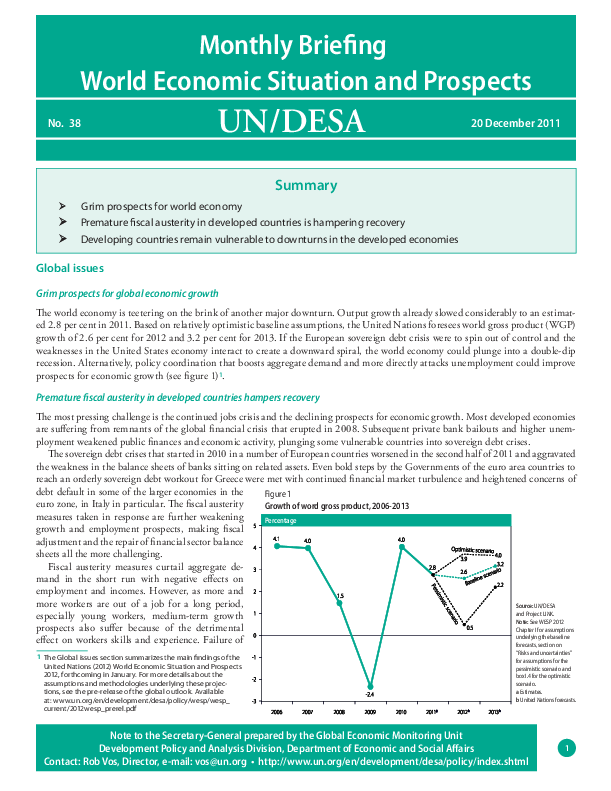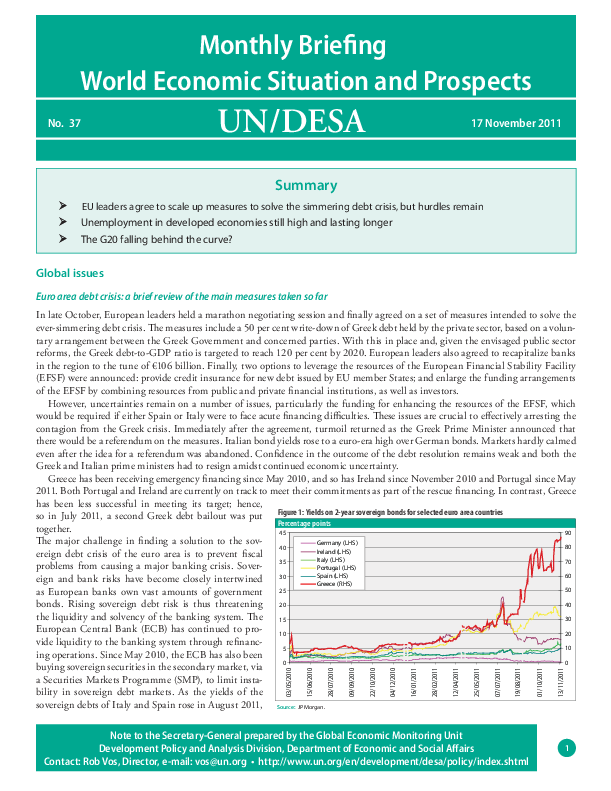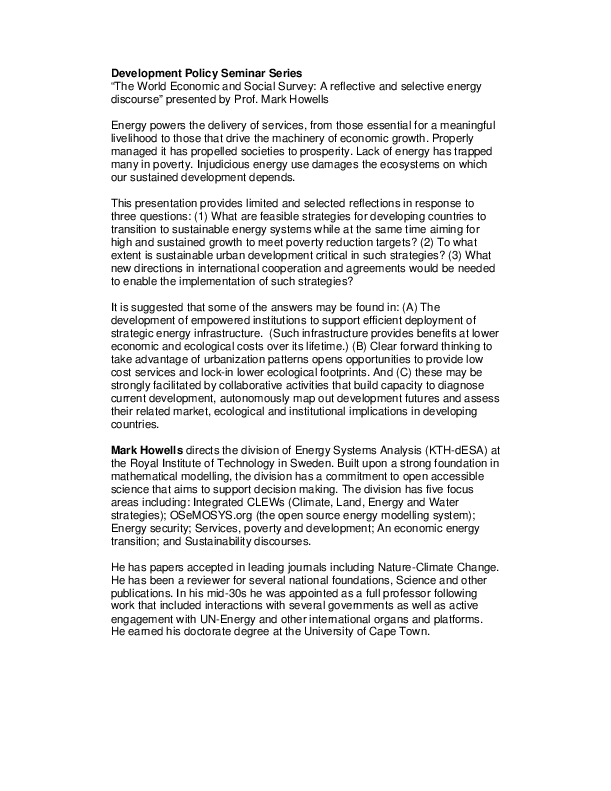Publications
Displaying 731 - 740 of 1105
ISBN: 978-92-1-109164-9 Executive Summary:
عربي, 汉语, English, Français, Русский, Español Download Full report in English Table of Contents Chapter I… World Economic Situation and Prospects 2012
 Welcome to the United Nations
Welcome to the United Nations
